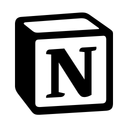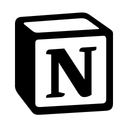Document360 vs Notion (2025 Comparison)

Document360 is a powerful knowledge base software that excels in version control and analytics. Its robust features and excellent customer support make it an ideal choice for businesses focused on documentation.
- Comprehensive version control features.
- Robust analytics for documentation insights.
- Excellent customer support.
- Limited task management capabilities.
- Fewer integrations compared to competitors.
Free plan?
YesStarting price
$199 per project/month
Notion is a versatile productivity tool with highly customizable templates and advanced collaboration features. Its seamless integration of note-taking and task management makes it perfect for individuals and teams.
- Highly customizable templates.
- Advanced collaboration tools.
- Versatile note-taking capabilities.
- Basic analytics features.
- Limited customer support options.
Free plan?
YesStarting price
$10 per month per userWhat is Document360?
Document360 is a comprehensive knowledge base software designed to help businesses create, manage, and share their documentation effortlessly. It offers a user-friendly interface, making it easy for teams to collaborate and maintain up-to-date information. With features like version control, analytics, and customizable templates, Document360 ensures that your documentation is always accurate and accessible. Whether you're a small business or a large enterprise, Document360 streamlines the process of knowledge management, enhancing productivity and customer satisfaction.
What is Notion?
Notion is a versatile productivity tool that combines note-taking, task management, and collaboration features into one platform. It allows users to create customized workspaces, making it ideal for individuals and teams looking to organize their projects and ideas efficiently. With its intuitive drag-and-drop interface, Notion helps users streamline their workflows, improve communication, and boost productivity. Whether you're managing personal tasks or collaborating on complex projects, Notion adapts to your needs, providing a seamless experience for users across various industries.
Pros and Cons of Document360 vs Notion

Pros & Cons of Document360
- Document360 offers a robust version control system, allowing users to track changes and maintain a history of document revisions. This feature is invaluable for teams that need to ensure accuracy and consistency in their documentation.
- With Document360's analytics, users can gain insights into how their documentation is being used and accessed. This feature helps businesses understand user behavior and improve their documentation strategy.
- Document360 provides responsive and helpful customer support, ensuring that users receive the assistance they need to make the most of the platform. This level of support is particularly beneficial for businesses that rely heavily on their documentation.
- While Document360 offers basic task management features, they may not be sufficient for teams that require advanced task organization and prioritization. Users looking for comprehensive task management may need to integrate with other tools.
- Document360 provides essential integrations for knowledge management, but it may not cover as many third-party applications as some competitors. Users who rely on multiple tools may find this limitation challenging.

Pros & Cons of Notion
- Notion offers unparalleled flexibility in creating and modifying templates, allowing users to tailor their workspaces to their specific needs. This feature is ideal for users who value creativity and customization.
- Notion's collaboration tools enable seamless communication and teamwork, making it easy for teams to work together on projects. This feature is particularly beneficial for remote teams and organizations with complex workflows.
- Notion excels in note-taking, providing users with a versatile platform to capture and organize their ideas. This feature is perfect for individuals and teams who need to keep track of their thoughts and projects.
- Notion offers basic analytics features, which may be sufficient for individual users but might not meet the needs of larger teams. Users who require advanced analytics may need to look for additional tools.
- Notion provides adequate customer support, but it may not be as comprehensive as some users would like. Businesses that rely heavily on support may need to consider this limitation.
Document360 vs Notion: At A Glance
Value to Price
When it comes to value for money, Notion slightly edges out Document360. Notion offers a broader range of features at a competitive price, making it a great choice for those looking for an all-in-one solution. Document360, while slightly more expensive, provides specialized features for knowledge management, which can be invaluable for businesses focused on documentation. If you're looking for a comprehensive tool with excellent value, Notion might be the better choice.
Ease of Use
Both Document360 and Notion are user-friendly, but Notion's intuitive drag-and-drop interface makes it exceptionally easy to use. Document360 is also straightforward, but its focus on documentation might require a slight learning curve for new users. If ease of use is your top priority, Notion's interface is likely to be more appealing.
Functionality
Notion excels in functionality with its ability to integrate note-taking, task management, and collaboration in one platform. Document360, on the other hand, specializes in knowledge management, offering robust features for creating and maintaining documentation. If you need a tool with diverse functionalities, Notion is the better option, but for documentation-specific needs, Document360 is unmatched.
Scalability
Both tools are scalable, but Document360 is particularly well-suited for businesses that anticipate growth in their documentation needs. Notion is also scalable, accommodating growing teams and projects with ease. If your primary concern is scaling your documentation efforts, Document360 is the tool to consider.
Integrations
Notion offers a wider range of integrations compared to Document360, making it a versatile choice for users who rely on multiple tools. Document360 provides essential integrations for knowledge management but may not cover as many third-party applications. If integrations are crucial to your workflow, Notion's extensive options make it the better choice.
Customer Support
Document360 shines in customer support, offering responsive and helpful assistance to its users. Notion provides adequate support, but it may not be as comprehensive as Document360's. If having reliable customer support is important to you, Document360 is the tool to choose.
Security
Security is a priority for both tools, but Document360 offers more robust security features, making it ideal for businesses handling sensitive information. Notion provides standard security measures, which are sufficient for most users. If security is a top concern, Document360's enhanced features make it the safer choice.
Overall Rating
Overall, Notion scores higher due to its versatility and ease of use, making it a popular choice for a wide range of users. Document360, while slightly lower in overall rating, excels in specialized knowledge management features. If you're looking for a versatile tool, Notion is the way to go, but for documentation-focused needs, Document360 is a strong contender.
Document360 vs Notion: A Detailed Breakdown of Key Features
Version Control
Document360 excels in version control, allowing users to track changes and maintain a history of document revisions. This feature is particularly useful for teams that need to ensure accuracy and consistency in their documentation. Notion offers basic version control, but it may not be as comprehensive as Document360's. If version control is a priority for you, Document360 is the better choice.
Customizable Templates
Both Document360 and Notion offer customizable templates, but Notion's flexibility in creating and modifying templates is unmatched. Document360 provides a range of templates tailored for documentation, which can be a great starting point for businesses. If you value flexibility and creativity in template design, Notion is the tool to choose.
Analytics
Document360 provides robust analytics features, allowing users to gain insights into how their documentation is being used and accessed. Notion offers basic analytics, which may be sufficient for individual users but might not meet the needs of larger teams. If analytics is a key consideration, Document360's advanced features make it the better option.
Collaboration Tools
Notion stands out with its advanced collaboration tools, enabling seamless communication and teamwork. Document360 also offers collaboration features, but they are more focused on documentation management. If collaboration is a top priority, Notion's comprehensive tools make it the ideal choice.
Task Management
Notion's task management capabilities are highly regarded, offering users the ability to organize and prioritize tasks effectively. Document360 provides basic task management features, which may be sufficient for documentation-focused teams. If task management is crucial to your workflow, Notion's advanced features make it the superior choice.
Note-Taking
Notion excels in note-taking, providing users with a versatile platform to capture and organize their ideas. Document360 offers basic note-taking features, which may be adequate for documentation purposes. If note-taking is a significant part of your workflow, Notion's capabilities make it the better option.
Pricing Comparison of Document360 and Notion
We’ve compiled the pricing tables and highlighted the key features of both Document360 and Notion to aid in your decision-making process. Let’s explore what each platform has to offer.

Document360 Pricing Plans
- Access for 1000 private readers and 5 editors.
- SEO optimized homepage builder for better visibility.
- Standard support to assist with any queries.
- Single workspace for streamlined management.
- API documentation and AI writer suite.
- Advanced customization options for flexibility.
- Import from Word and export to PDF capabilities.
- 24/5 support for continuous assistance.
- AI search suite with 2000 credits for efficient search.
- Advanced analytics for data-driven decisions.
- Public API access for integration flexibility.
- Onboarding with dedicated CSM for personalized support.
- Unlimited articles for extensive documentation.
- Sandbox environment for safe testing.
- Complete AI suite for comprehensive automation.
- 24/5 priority support for urgent needs.

Notion Pricing Plans
- Collaborate with friends, family & colleagues on your pages.
- Basic page analytics to track interactions.
- Restore your page to a previous version with 7-day history.
- Invite up to 10 guests to collaborate.
- Unlimited file uploads for seamless data management.
- 30-day page history for better version control.
- Invite up to 100 guests for broader collaboration.
- Custom websites with Google Analytics integration.
- Private teamspaces for sensitive information.
- Bulk PDF export for legal or compliance backups.
- Advanced page analytics for detailed insights.
- Invite up to 250 guests for extensive collaboration.
- Advanced security & controls for enhanced protection.
- Audit log for tracking security-related activities.
- Customer success manager for expert guidance.
- Unlimited page history for comprehensive version tracking.
Our Rating Methodology
We thoroughly test each productivity tool, evaluating key features like ease of use, functionality, and scalability. We also analyze user reviews to ensure our recommendations fit your needs. Each of the seven evaluation factors is weighted by importance to provide an accurate final rating, helping you avoid poor-quality tools and make informed decisions.
Document360 or Notion: Which One Matches Your Business Needs?
Choose Document360 If You Need ...
- Comprehensive documentation management
If you are a business focused on creating and maintaining comprehensive documentation, Document360 is the ideal choice. Its robust version control and analytics features ensure that your documentation is accurate and accessible.
- Excellent customer support
If you value responsive and helpful customer support, Document360 is the tool to choose. Its support team is dedicated to assisting users and ensuring they get the most out of the platform.
Choose Notion If You Need ...
- Versatile productivity tool
If you need a versatile productivity tool that combines note-taking, task management, and collaboration, Notion is the perfect choice. Its intuitive interface and customizable templates make it easy to organize your projects and ideas.
- Advanced collaboration features
If collaboration is a top priority for your team, Notion's advanced collaboration tools make it the ideal choice. Its seamless communication and teamwork capabilities ensure that your team can work together effectively.
Frequently Asked Questions
 Which tool is better for documentation management?
Which tool is better for documentation management?
 Which tool offers better collaboration features?
Which tool offers better collaboration features?
 Which tool is more user-friendly?
Which tool is more user-friendly?
 Which tool provides better customer support?
Which tool provides better customer support?
 Which tool is more secure?
Which tool is more secure?
 Which tool is more cost-effective?
Which tool is more cost-effective?

Martin Lunendonk
Martin Lunendonk is a senior tech writer specializing in website builders, web hosting, and ecommerce platforms. With a background in finance, accounting, and philosophy, he has founded multiple tech startups and worked in medium to large tech companies and investment banking, bringing deep expertise and reliable insights to his software reviews.



